The Late 20th Century
Back to History Part 2 - The George Altham Years
Following what was described as a rigorous selection process, Mr Robert Atherton was appointed conductor of both the choir and orchestra. He was born in Burnley, but was based at Marton near Blackpool. His son David became a famous international conductor.

His first concert in September 1956 was “A Tribute to George Altham”. This was followed by The Creation, with local soprano Jean Reddy, John Mitchinson and George Allen.
Unfortunately there are some gaps in the choir archive during this period, but we are hoping to fill them in over time.
Initially things continued much as before, with concerts at the Empire with soloists of the highest pedigree, but it is notable that even by the mid-1950s, audience numbers had dropped to about 700. (750 was recorded for George Altham’s final Elijah in 1955).
By 1964, the choir had left the Empire, and for a short period held its concerts at the now demolished High School on Kiddrow Lane, before moving to the relatively new Barden Secondary School in 1968.
In 1965, The Verdi Requiem (see image for soloists), and Vaughan–Williams’ Sea Symphony (with Rae Woodland and John Cameron), were performed at the High School and Marjorie Thomas returned with Elgar’s Musicmakers.

There was not much new repertoire, but some new soloists debuted with the choir. These included sopranos Rae Woodland and Barbara Siddelley; mezzos Barbara Robotham and Josephine Veasey; tenors Kenneth Bowen and John Mitchinson (below right), and the fine Australian baritone John Cameron (below left).
Sylvia Jacobs who lived in Burnley, and became a singing teacher at the RNCM alongside Barbara Robotham and John Mitchinson, was the soprano soloist on several occasions, and a fine local tenor, Jack Burrows, was also engaged on more than one occasion.
The final concert of the 60s was an Opera Gala, including a “pocket version” of Gounod’s Faust. George Allen sang Mefistofeles.
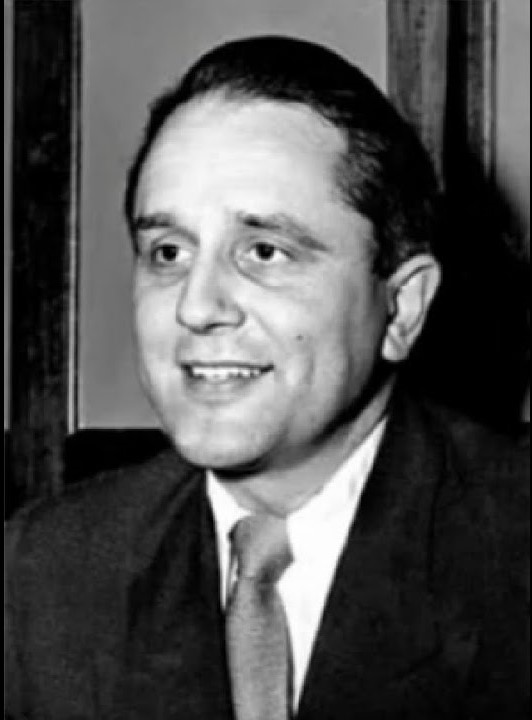
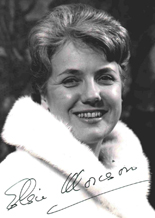
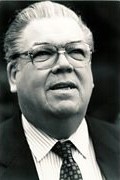
The 1970s
The 70s began with a performance of The St. Matthew Passion.
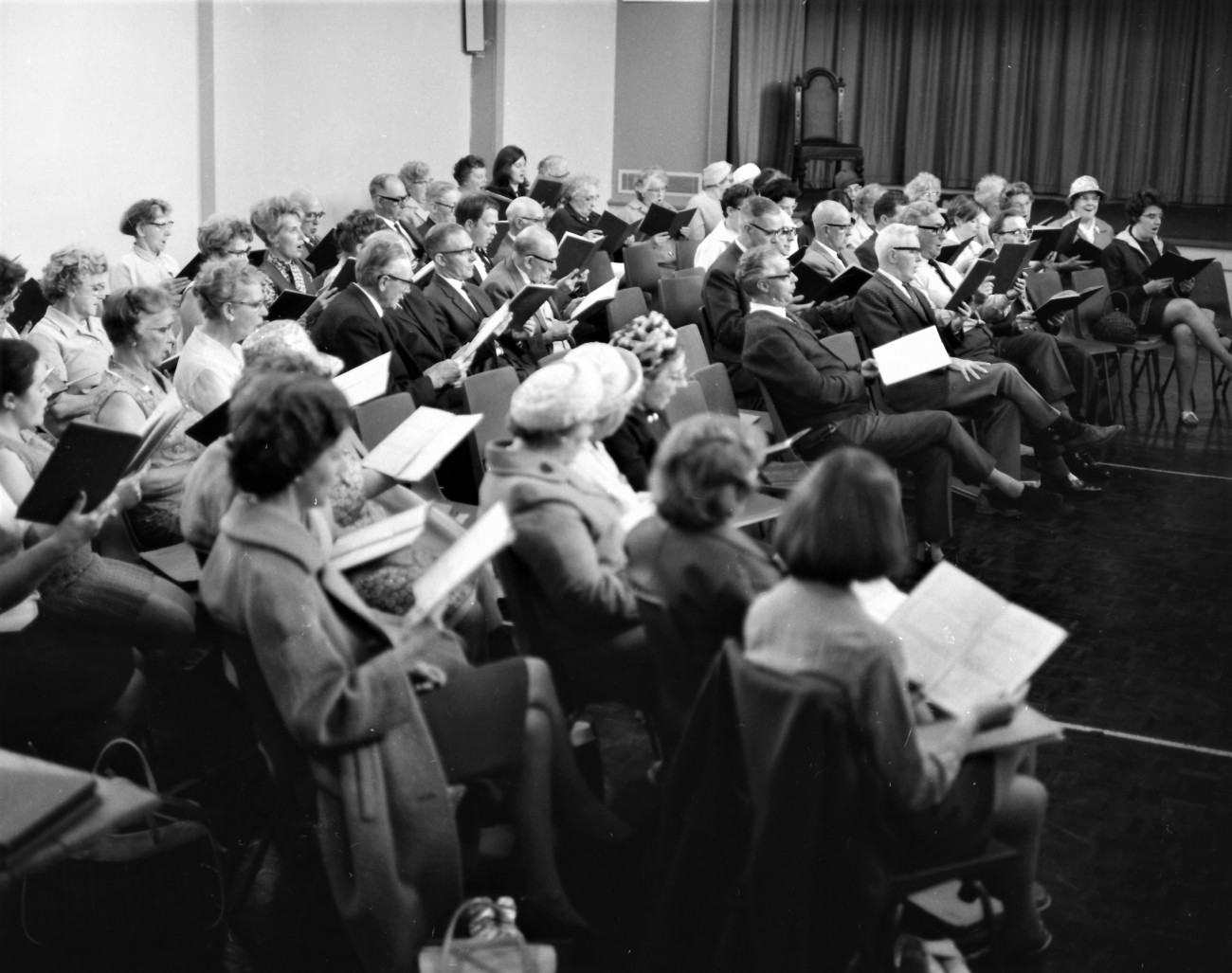
This rare picture, taken at a rehearsal, shows that the choir was much depleted in numbers by this time. It’s interesting to see many choir members sitting with legs crossed, (not conducive to good breathing or singing). One man appears to be almost reclining!, but at least the men were wearing suits and some ladies wore hats!
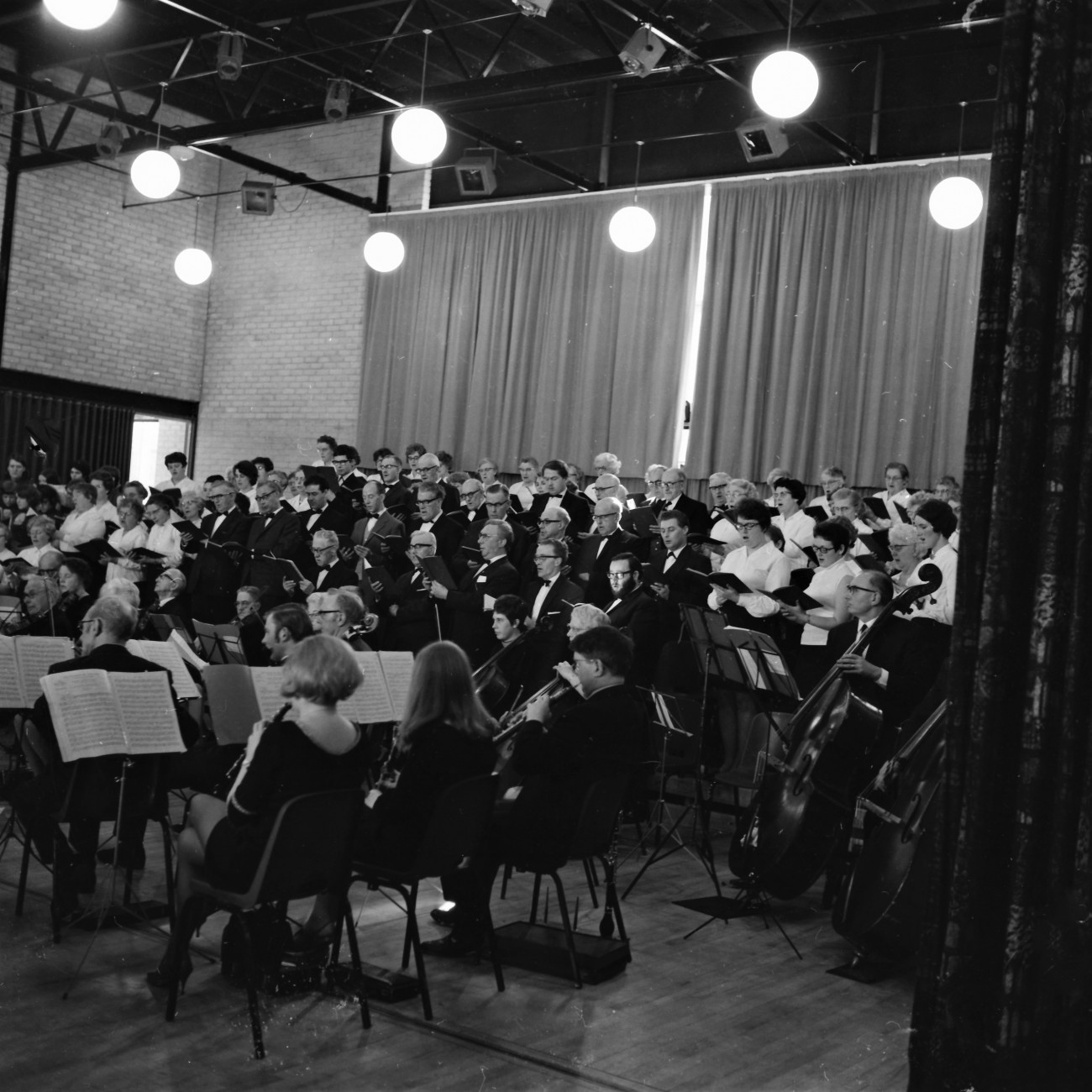
The concert itself was one of the few occasions in which the two great Burnley baritones of their generation sang together – Jerry Latham and Peter Walker.
Peter was originally a Yorkshireman, but had moved to Burnley and become Head of Music at the Girls’ High School, where he directed a first rate choir, who were successful at many festivals.
The High School Choir joined the Municipal Choir for this concert.
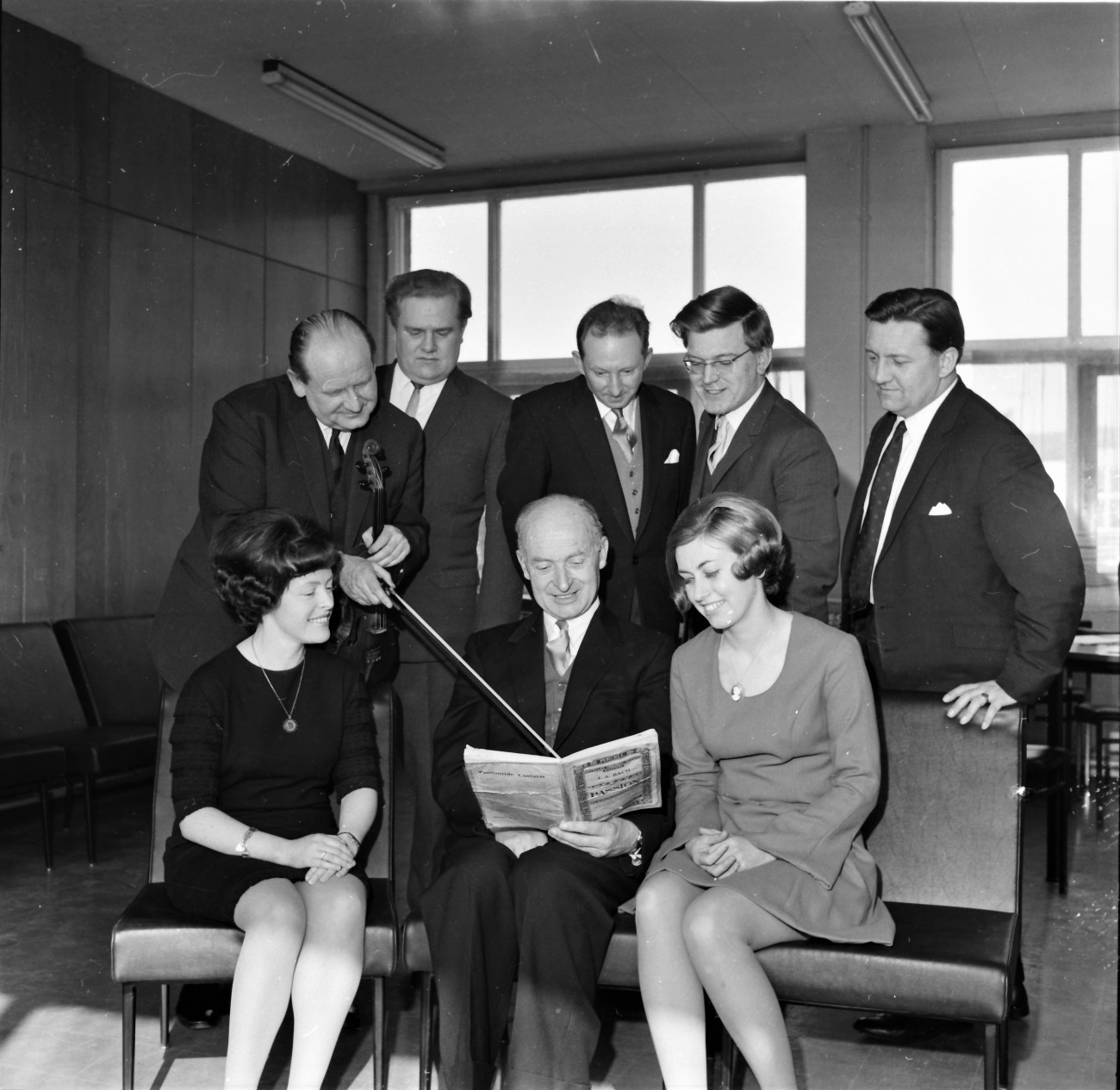
In this photograph, taken before the concert, we see Robert Atherton (centre front), Jerry Latham (2nd left on the back), and Peter Walker on the right. The tenor was Neil Jenkins (to Peter Walker’s left). Next to Jerry in the centre is Kenneth Healey, who was the choir accompanist for 4 decades before moving down to Aldeburgh.
The Golden Jubilee Season (1970 -71) was held at Barden, and was marked by a performance of Elijah with George Allen singing the role in which, by now, he was considered peerless. Local soprano Doris Atkins sang the soprano.
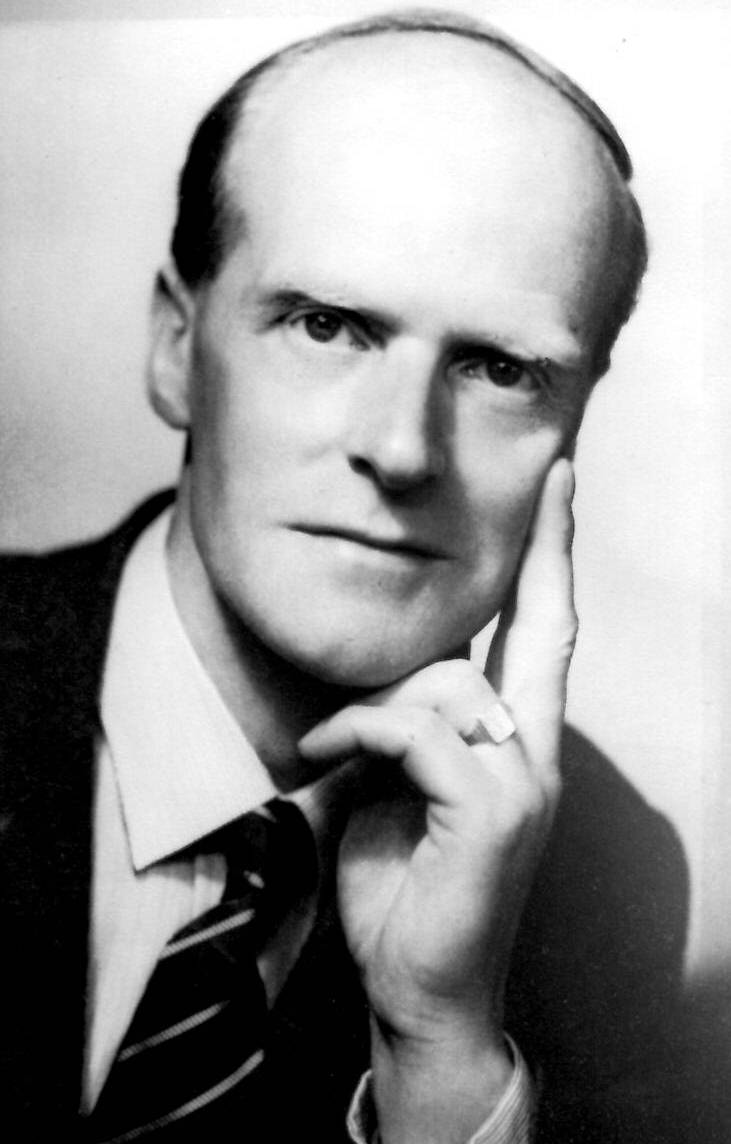
There was now an increasing tendency to use local singers. This was, no doubt, influenced by the significant reduction of income that the choir was receiving. Not only were audiences dwindling, but choir numbers were declining too, and financial support from the local authority was not as it once was.
According to the Golden Jubilee brochure, average attendance at rehearsals was around 70.When the choir sang Merrie England the following year, Jerry Latham was joined by another local singer, tenor Derek Gill. He sang with Jerry and Peter Walker on many occasions. His daughter, Maureen Howarth is now the choir treasurer, and Jerry’s grand-daughter, Joanne (Latham) is the choir secretary.
All four soloists for The Messiah in 1972 were Burnley based: Doris Atkins, Joan Aubin, Derek Gill and Jerry Latham. Other local singers to be engaged by the choir around this time included sopranos Joanne Smith (Sarah McCall) and Joan Holden, and tenor Alan Binns.
By 1973 attendance at rehearsals had dropped to 58. This was due,in part,to a number of resignations by ladies who did not approve of the new more colourful dress-code. There was clearly a rift between some members and the committee, since in his report for AGM, the Secretary, Cyril Morris, commented sarcastically: “Perhaps it would improve morale if the ladies wore dinner jackets for concerts”.
There was a further issue for the committee in January 1974, when the performance of The Creation had to be brought forward to 2:15 and curtailed due to the “Three Day Week”. There was no electricity at Barden on that day! Barabara Siddelley was the soprano and Peter Walker the bass.
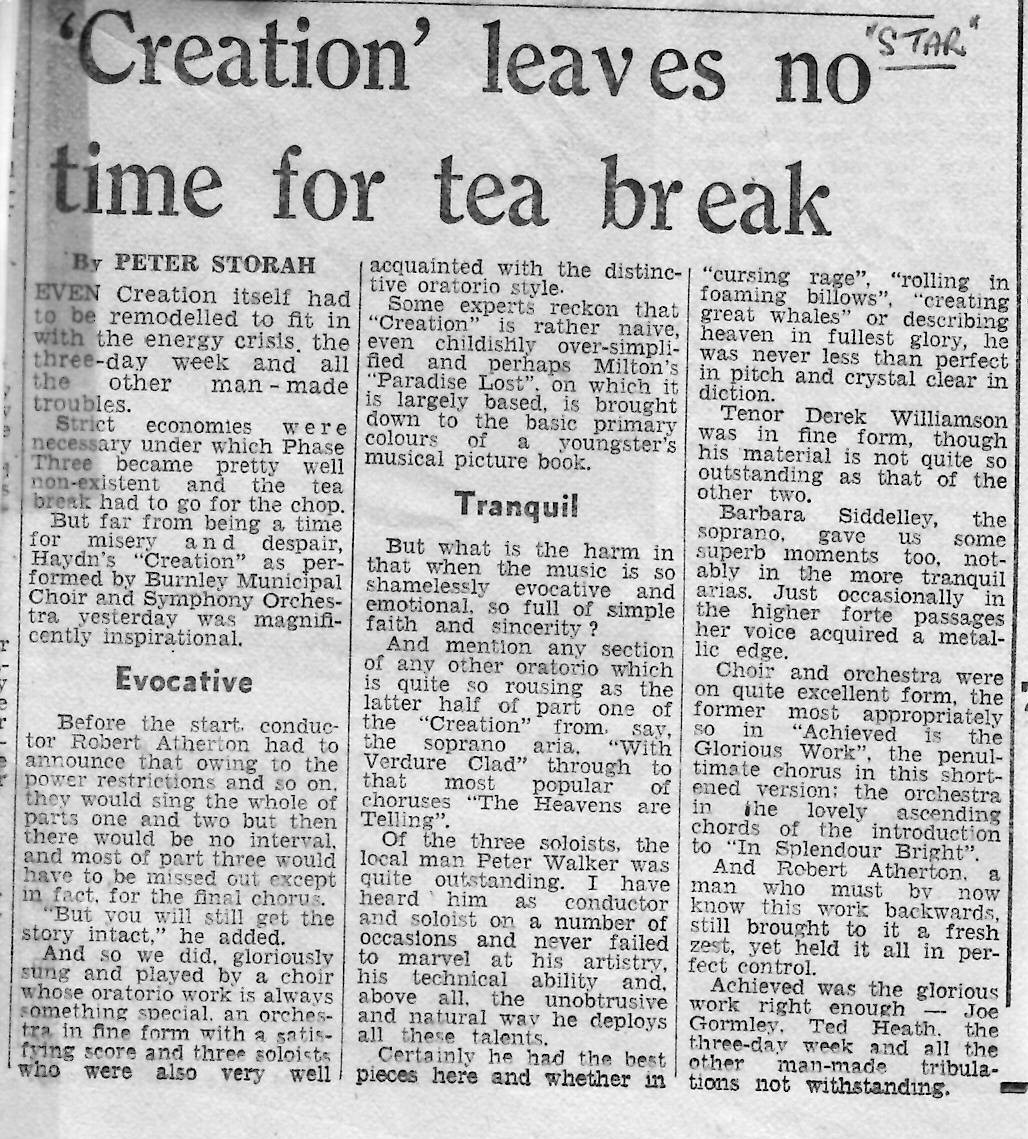
When the choir sang Tom Jones in November 1974, with a strong line-up of Sarah McCall, Patricia Lewis, Jerry Latham and George Allen, the weaknesses of the choir were cruelly exposed in the local press.
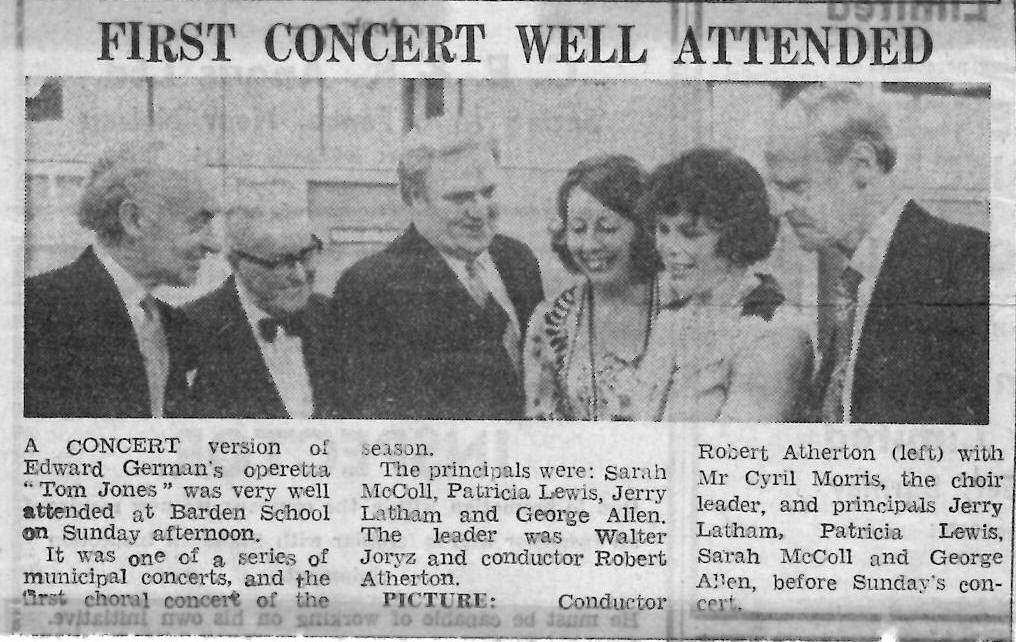
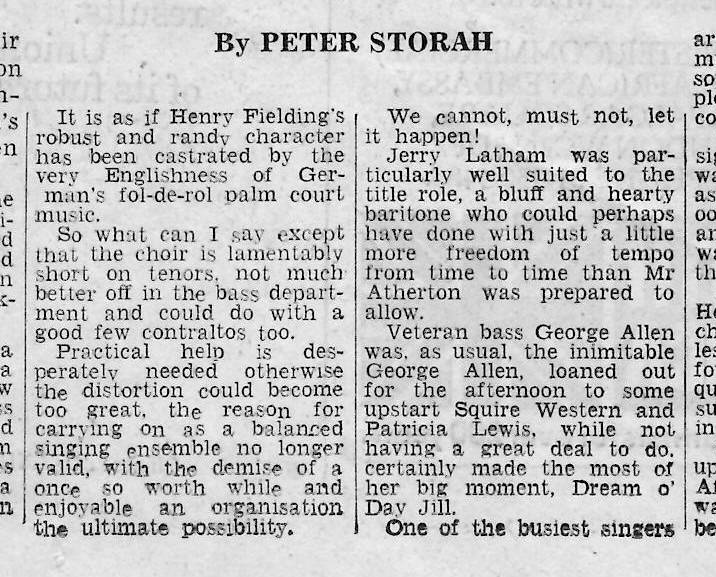
The Verdi Requiem was an ambitious choice later that year, but the choir was able to recruit many guest singers. Sylvia Jacobs again sang the soprano and George Allen the bass.
There was further disquiet in the choir ranks in the autumn of 1974, when it was decided to sing the Mozart Coronation Mass in Latin! This was the first time that the choir had departed from the vernacular, and was strongly opposed by some members. The conductor and committee prevailed, and so the choir sang in a “foreign language” for the first time in January 1975.
A notable concert was held in March 1975, when Kenneth Woollam sang the role of Gerontius at Barden. Following on from Richard Lewis and John Mitchinson, he was acknowledged as one of the greatest interpreters of this role. Caroline Foster was the mezzo and Peter Walker the baritone. The High School Choir (which included choir member Annette Parkinson), sang the angelicals, and the choir were also joined by the Blackburn Bach Choir. Without these contributions, it would not have been possible to put on such a large-scale work. (Attendance at rehearsals was now down to 54).
There was an extended detailed exchange of correspondence between the choir committee and Chief Executive of the Borough Council, because the choir had failed to inform the Council that the Girls’ Choir and the Bach Choir would be involved. It could easily have formed the basis of an episode of “Yes, Minister”.
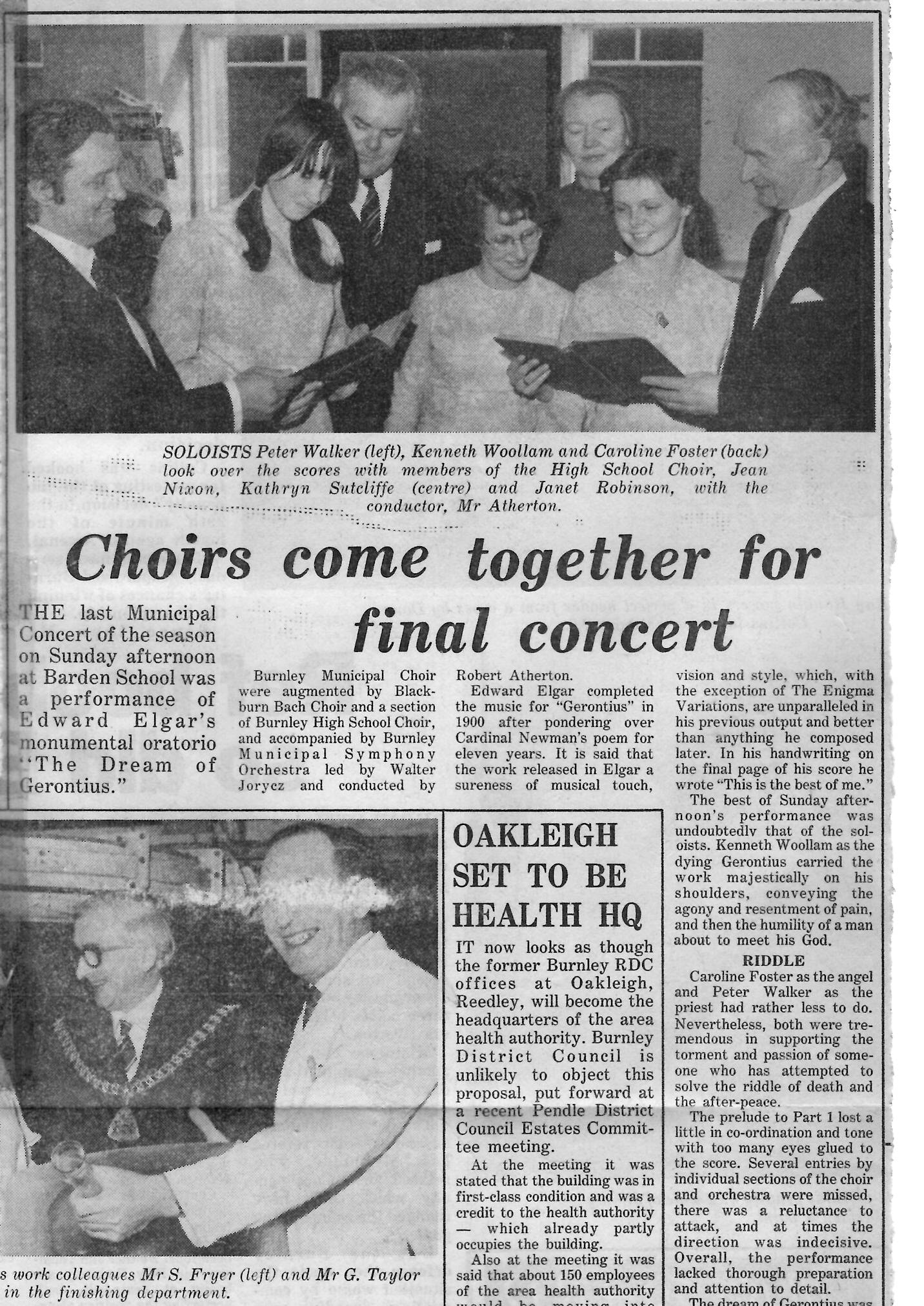
The choir sang “Acis and Galathea” (Handel), in 1976, and tenor Tommy Carroll completed 50 years service at this concert. He had sung this work under Dan Duxbury in the 1920s.
When interviewed by the press,Tommy Carroll painted a rather gloomy view of the choir’s future:
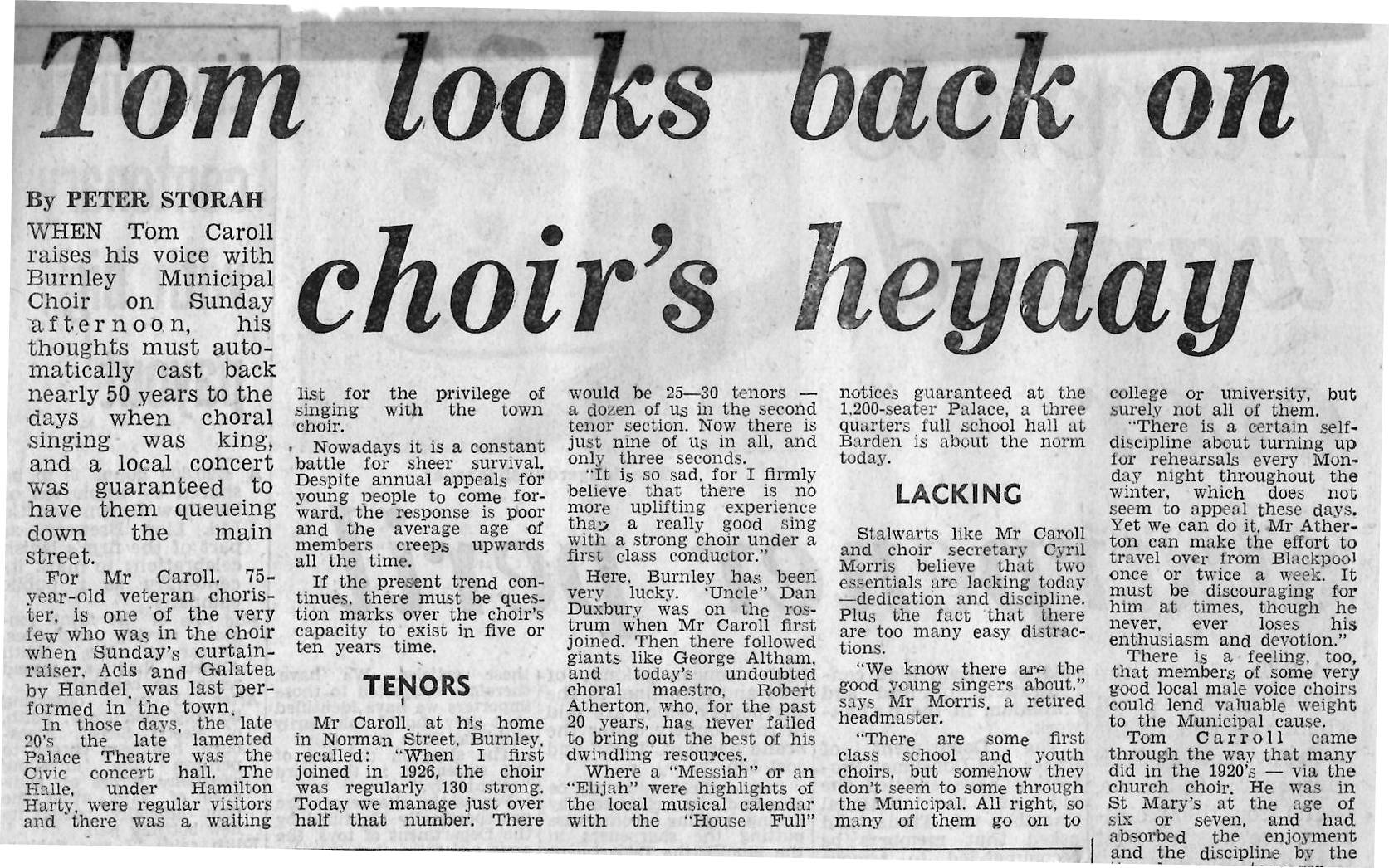
A new name appeared in the bass section of the choir in 1975. It was John David, who was soon to become the choir Chairman. He and his wife Judith, who became Secretary, served the choir for a combined total of over 60 years.
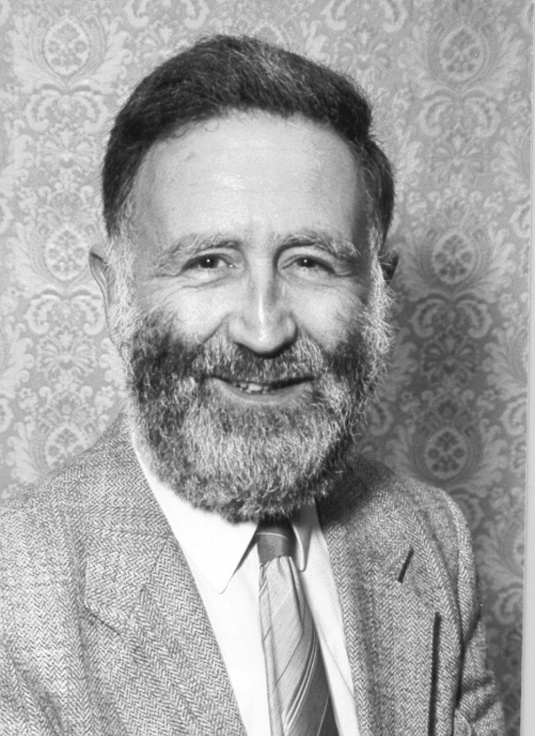
Merrie England was reprised in 1976, with both Derek Gill and Jerry Latham.
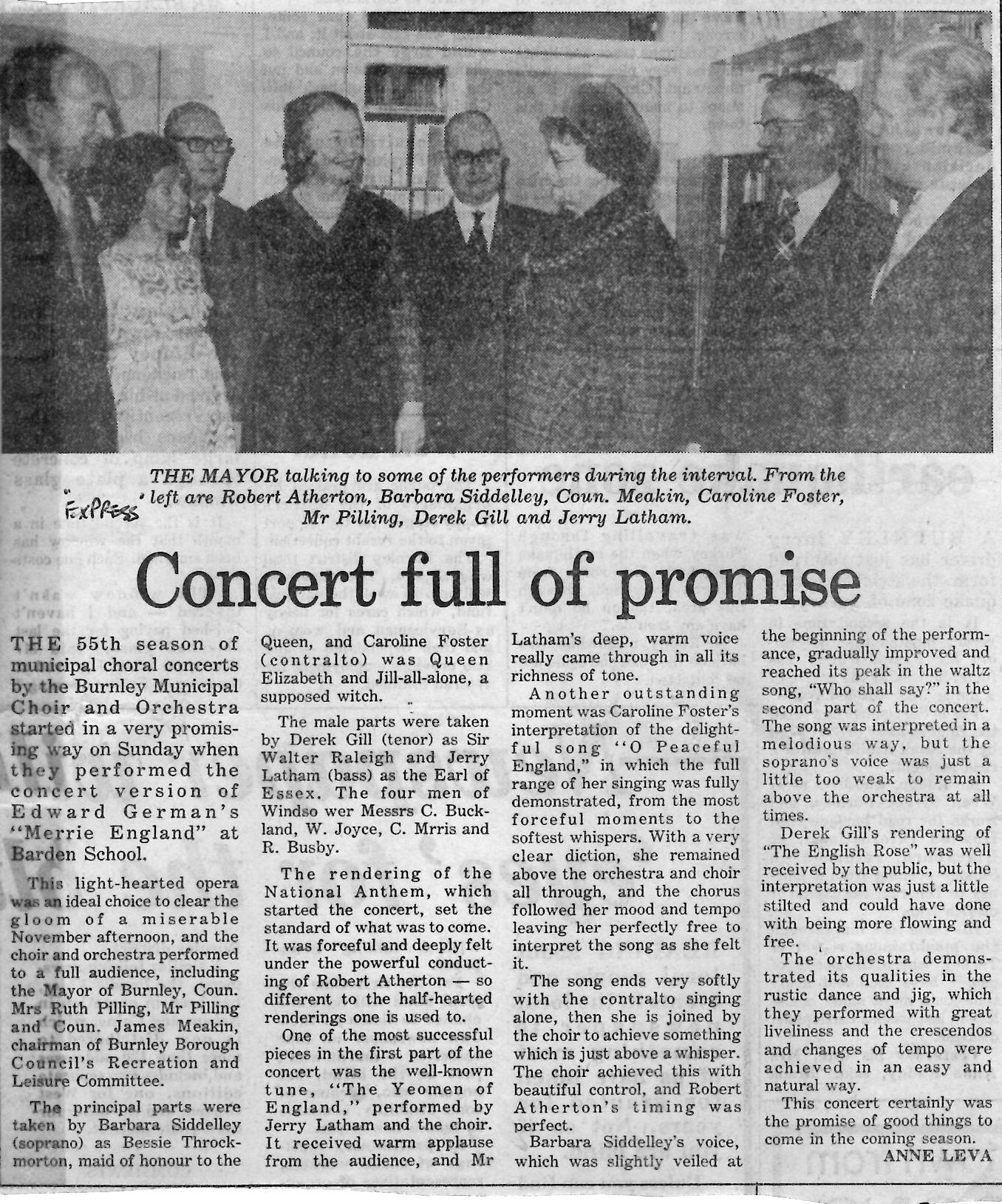
In 1976 Robert Atherton went on an adjudicating tour of America, so Kenneth Healey was asked to step in and conduct.
George Allen made his final appearance with the choir.
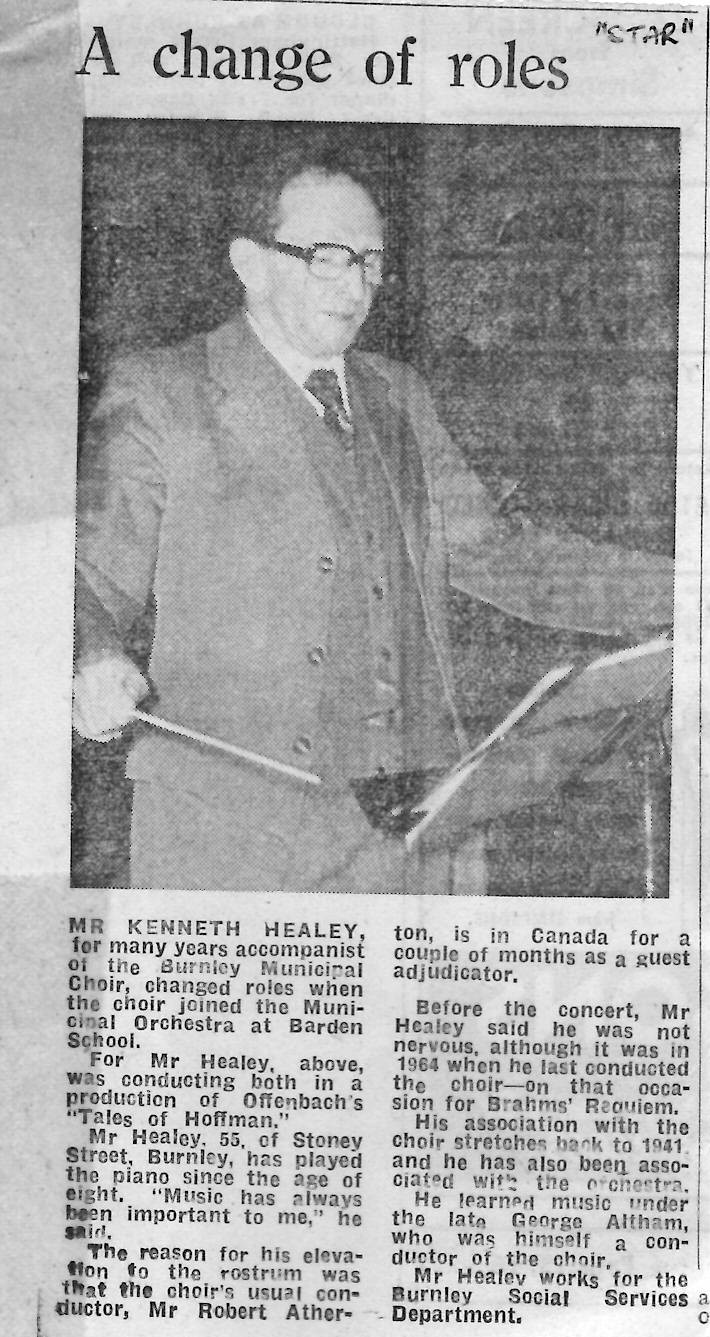
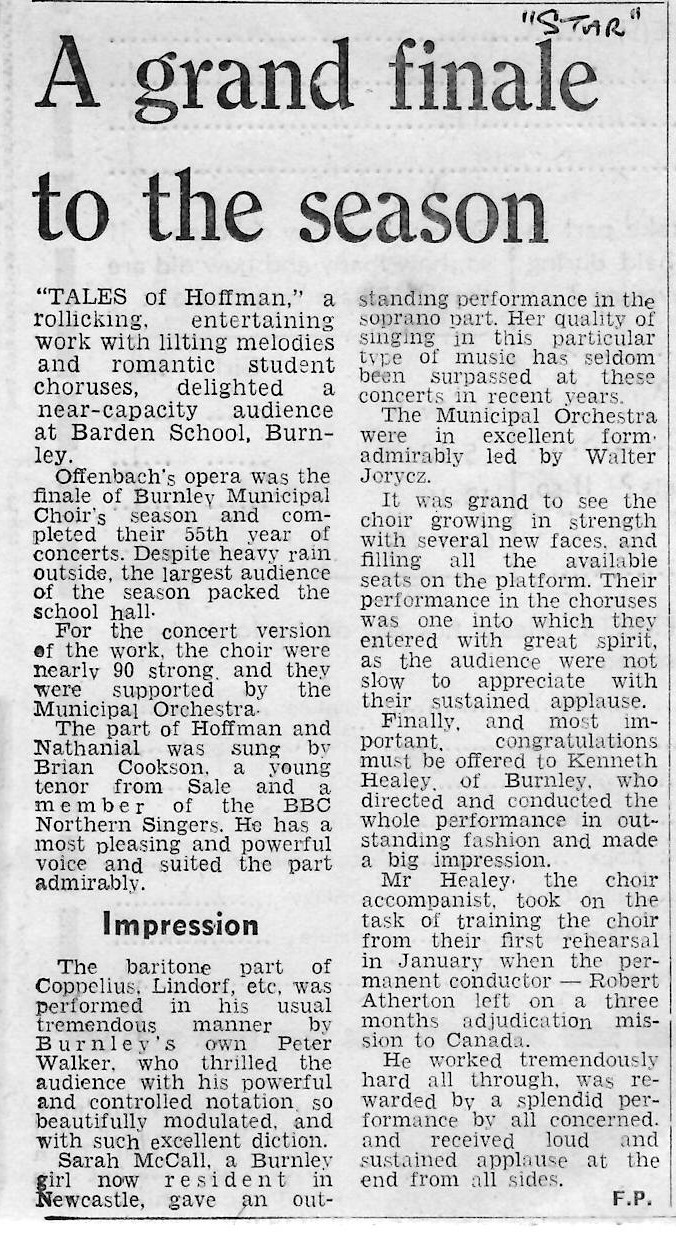
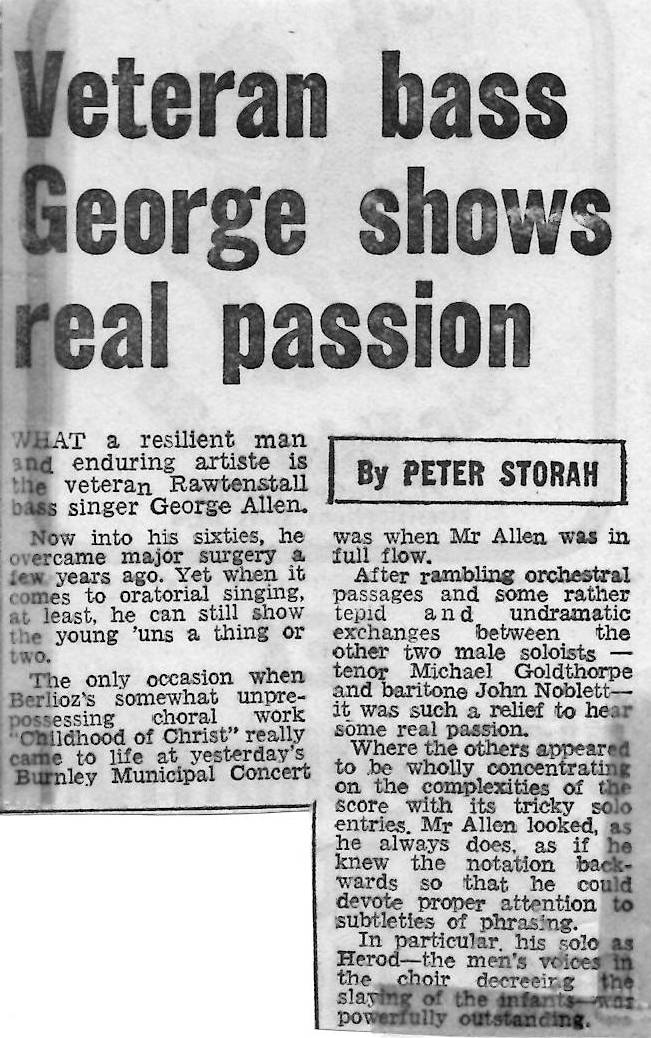
The 1980s
At the end of the 1979/80 season, Robert Atherton retired. The post was advertised and Peter Stallworthy was appointed the choir’s fourth permanent conductor.
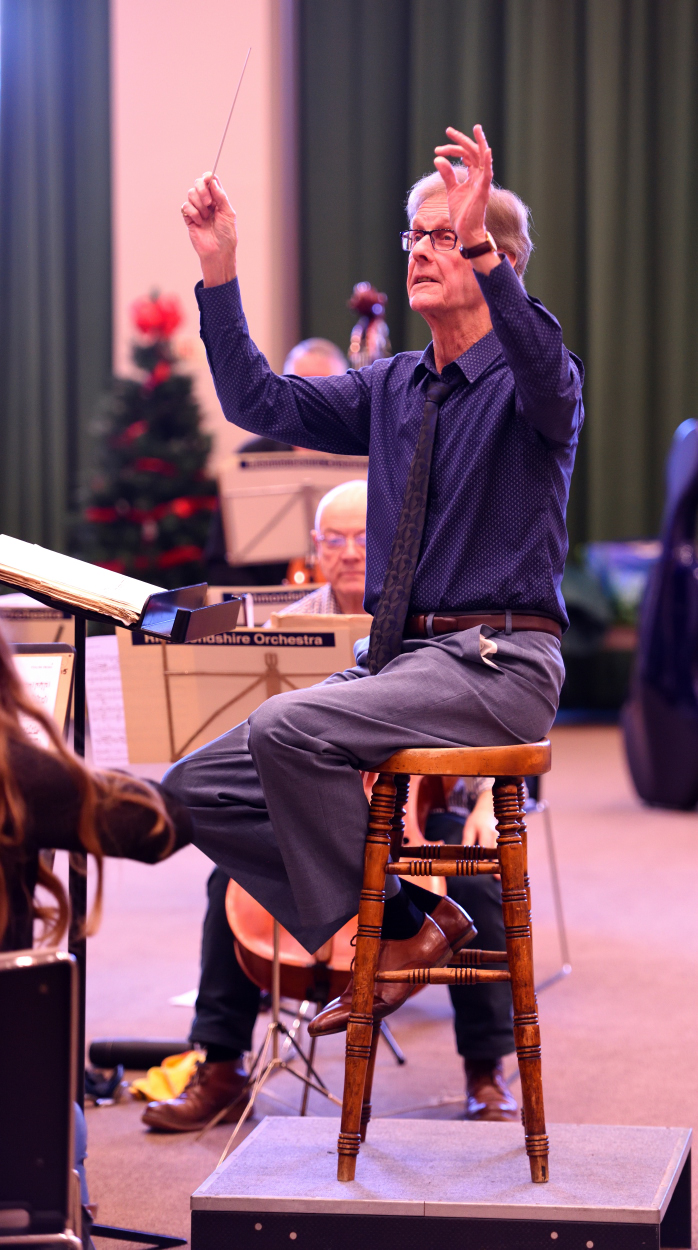
Peter Stallworthy studied piano from the age of seven and some six years later was a prize winner in the National Chopin Competition in London. He studied Music at King’s College, London, with Thurston Dart, and subsequently piano with Ryszard Bakst at the Royal Manchester College of Music, where he was awarded the Ricordi Prize for conducting.
By this time the choir was under the auspices of the Burnley Recreation and Leisure Services, and had a new concert venue: The William Thompson Sports Centre.
With John David now installed as chairman, the choir enjoyed something of a renaissance. Membership increased and musical standards improved.
For the first time in the choir’s history, an annual subscription payable by members (of £5) was introduced. This enabled the choir to put on a higher standard of concert.
Additionally members had to pay 15p every time they went through the turnstile at the Sports Centre. This was about 60p in today’s money, and did not go down well with some members.
During the 1980s the choir tended to engage young soloists from the RNCM. Very few local soloists were used. The one main exception to this was Keith Latham, Jerry’s son/Joanne’s father, who by this time, was established as one of the country’s leading baritones, and singing regularly at Opera North and further afield.
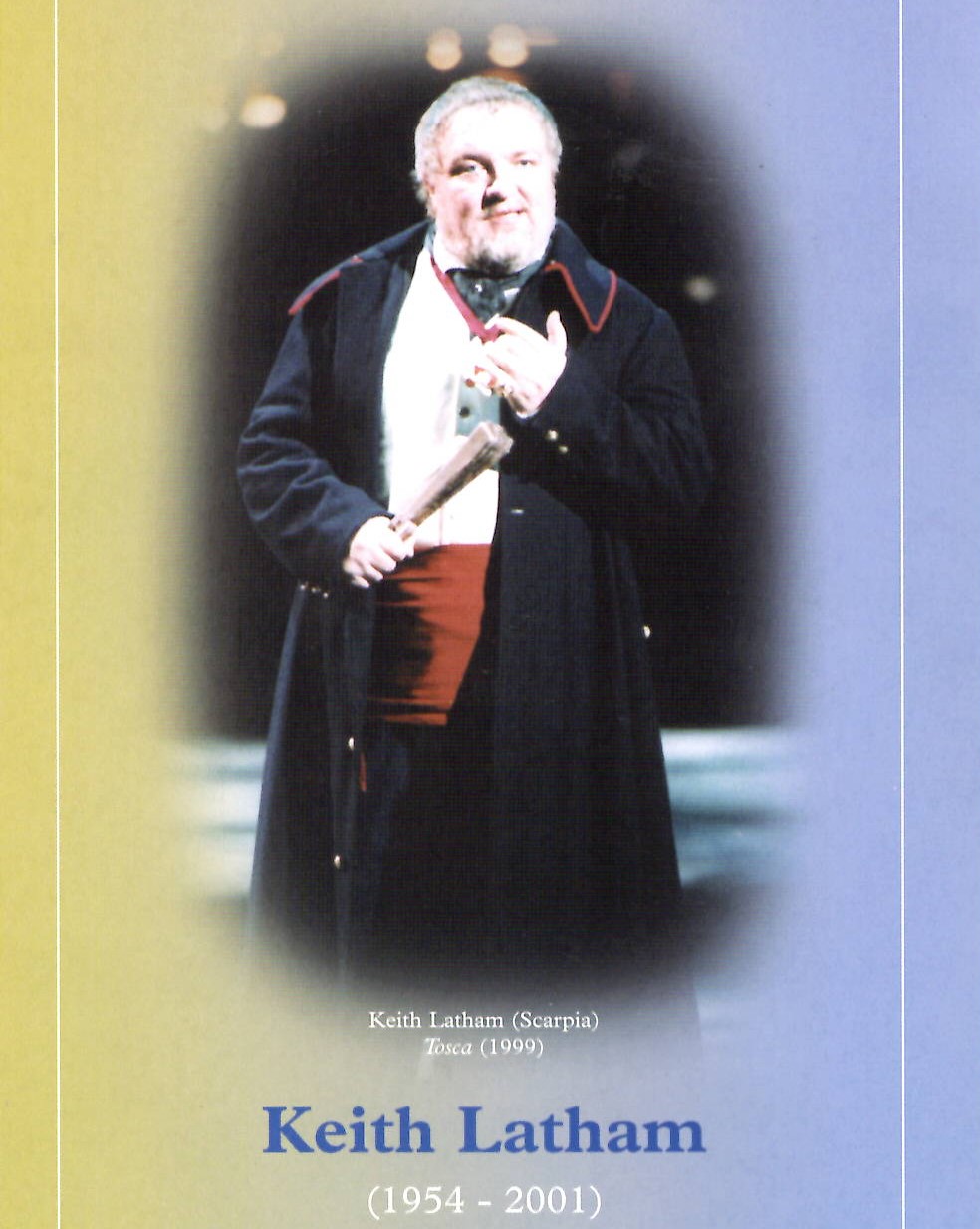
Keith sang the Fauré Requiem, Elijah, The Dream of Gerontius and the Verdi Requiem with the choir in the 1980s.
The choir sang Carmina Burana for the first time in 1985.
Of the many students who sang with the choir, many went on to have solid careers with various opera companies, but few went on to have a major international career. A notable exception was the tenor Barry Banks, who sang with the choir in 1981 and 1983, and returned in 1989 to sing the Verdi Requiem. Keith was the baritone. Jennifer Hatfield was the soprano. She was better known in her home town as Jennifer Sharp, where she had been a member of Peter Walker’s High School choir.
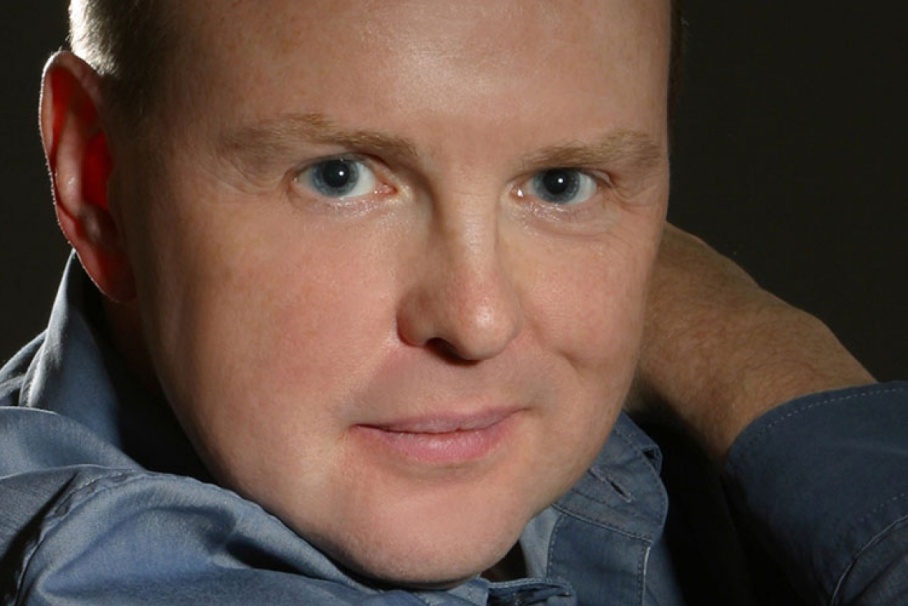
The Verdi Requiem was performed at the Burnley Mechanics. The choir had moved there in March 1987 following this historic building’s refurbishment and reopening. The opening concert was quite a low key affair, with works including Brahms’ Song of Destiny and Haydn’s Nelson Mass. Jayne Carpenter was the soprano and Leah Marian Jones the mezzo.
This was followed by The Messiah later that year and The Dream of Gerontius in 1988.
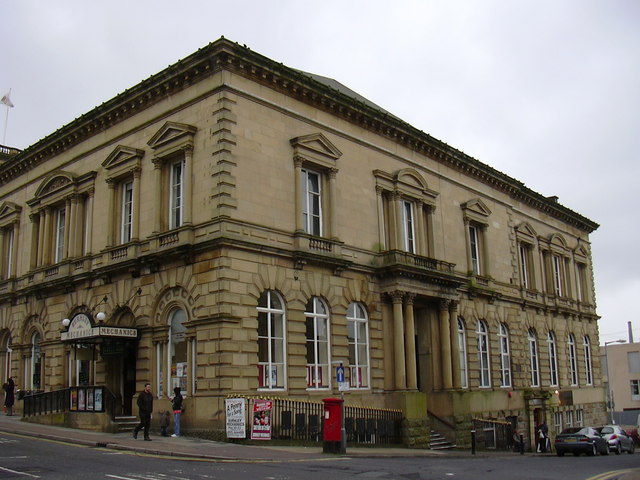
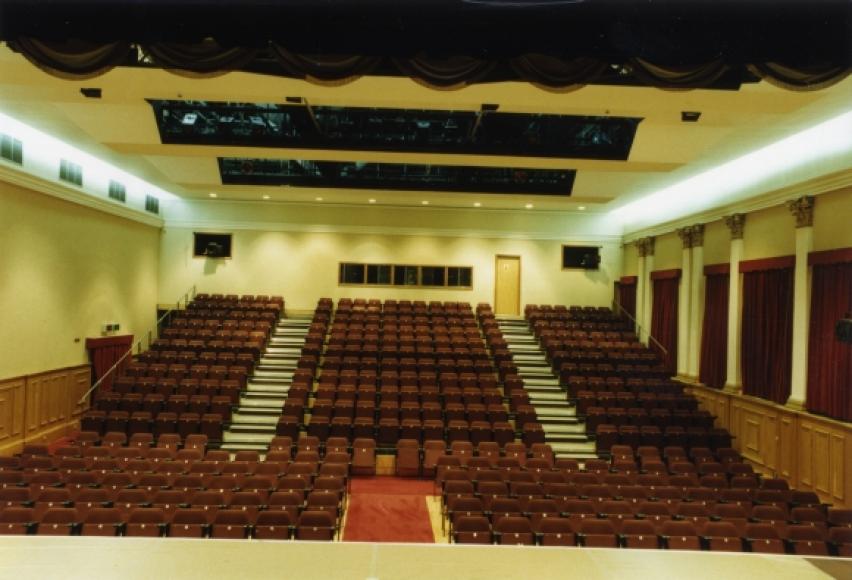
Following the Verdi Requiem in 1989, the final concert of the 1980s was Beethoven’s Missa Solemnis – generally considered to be one of the most challenging choral works of all time, and one that places almost impossible vocal demands on the choir, especially the sopranos and tenors.
The 1990s
In the 1990s, the choir, under Peter Stallworthy, expanded its repertoire considerably. Some works were better received by the choir and its audience than others.
New works included The St John Passion, Masses by Haydn and Schubert, the Beethoven Mass in C and his Choral Fantasy, Bizet’s Te Deum, Bruckner’s Te Deum, Stravinsky’s Symphony of Psalms, Holst’s Hymn of Jesus, Poulenc’s Gloria, and Verdi’s 4 Sacred Pieces.
Soloists who went on to enjoy major careers included Christine Rice, Roland Wood and Rossendale’s Alwyn Mellor, who has sung Brunnhilde at Opera North, Seattle and elsewhere.
Of the more established repertoire, The Messiah was only performed once in the 90s (1992), but Elijah was sung in 1994, and Gerontius in 1997.
The Verdi Requiem was performed in both 1994 and 1999. On the second occasion, the choir were joined by a student choir from Nelson and Colne College, whose conductor was Dr Alison Birkinshaw.
Keith Latham was the baritone on both occasions. He was joined in 1999 by the international Wagner tenor Jeffrey Lawton and Kathleen Wilkinson – her first performance with the choir.
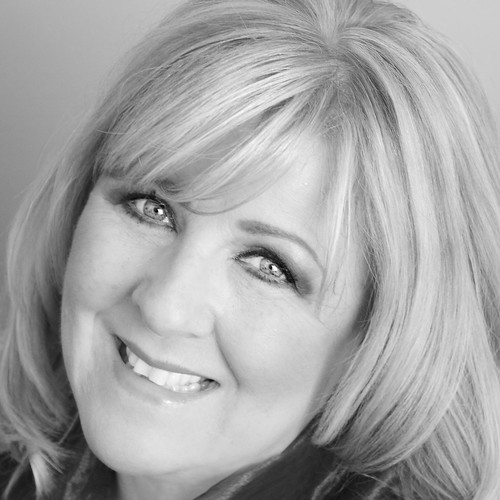
Carmina Burana was performed in November of that year to bring an exciting decade to an end. Sadly the Verdi Requiem was to be Keith’s final appearance with the choir due to his tragic death in January 2001.
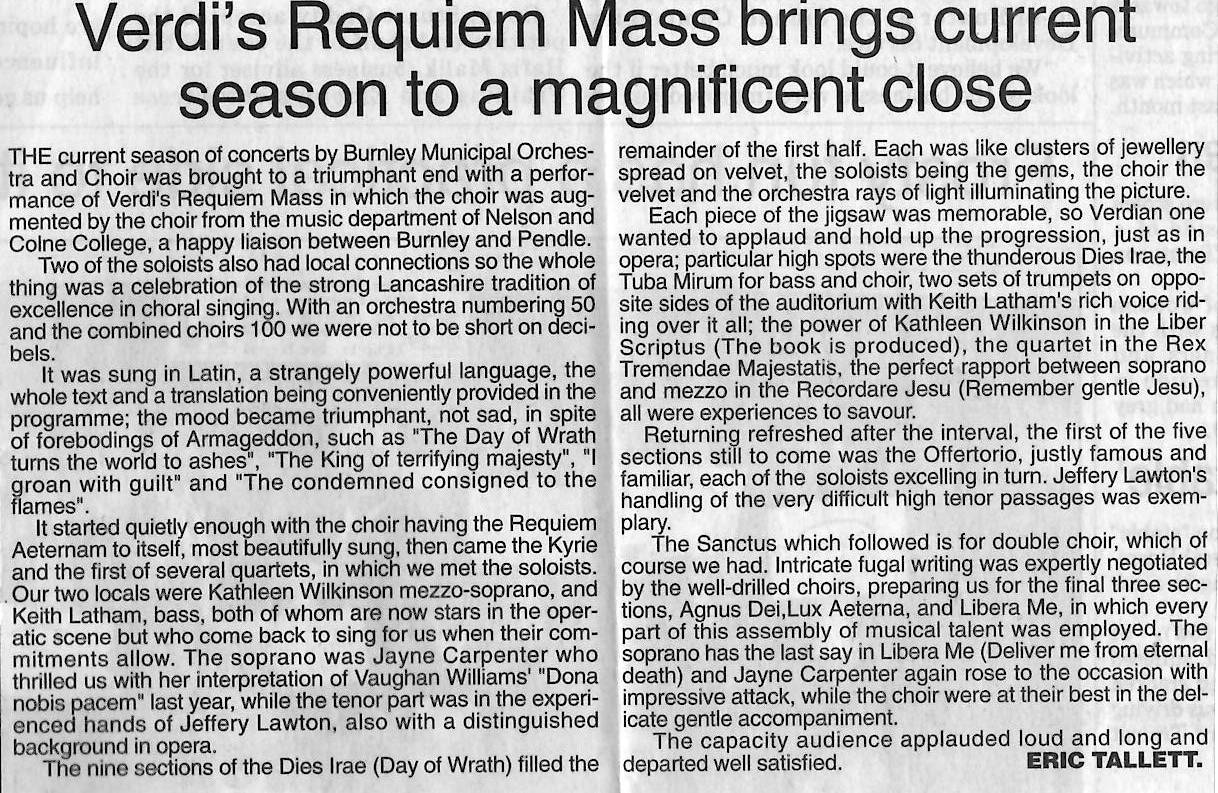
Continue to History Part 4 - Into the 21st Century


